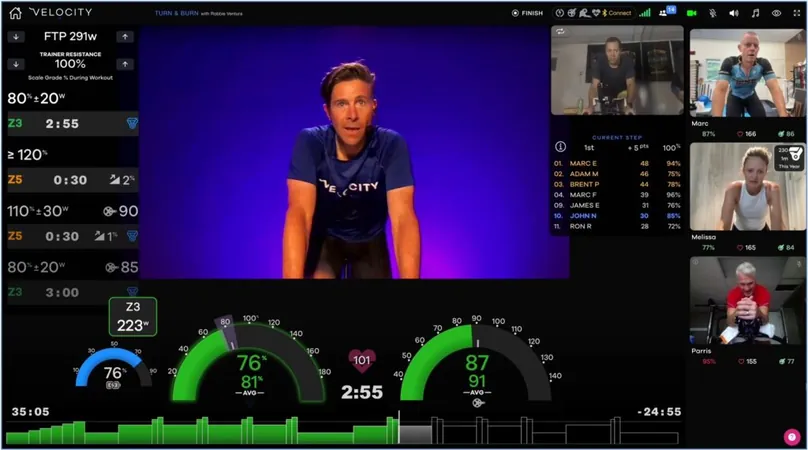
Breakthrough in AI-Data Integration: Anthropic Unveils Model Context Protocol
2024-11-26
Author: Benjamin
Introduction
In an exciting development for the world of artificial intelligence, Anthropic has announced the release of its Model Context Protocol (MCP), a game-changing open-source tool designed to standardize the integration of data sources with AI models. This innovative protocol aims to simplify the often complex process that enterprises face when connecting various data systems to AI applications, ultimately revolutionizing the way developers approach AI implementation.
Traditional Challenges
Traditionally, developers have had to write custom code every time they wanted to link a specific data source to a model, which can lead to inefficiencies and compatibility issues. Unlike existing frameworks like LangChain, which require extensive coding for data integration, MCP proposes a 'universal translator' for AI technologies, facilitating smoother interactions between a variety of data sources and models, including the Claude family developed by Anthropic.
Transformative Potential
Anthropic’s head of Claude Relations, Alex Albert, emphasized the transformative potential of MCP in a recent social media post. He highlighted that the protocol is designed to handle both local resources—such as databases, files, and services—and remote APIs—like Slack and GitHub—using a unified approach. This dual compatibility not only streamlines the process for developers but also enhances data retrieval capabilities for businesses leveraging AI.
Addressing Standardization Issues
The lack of a standardized method for connecting data sources to models has long posed challenges for enterprises. Each AI model typically requires unique code for integration, leading to a fragmented ecosystem where different models struggle to work cohesively with the same databases. Anthropic’s MCP seeks to address this issue by providing a consistent framework that allows for improved interoperability among various AI systems and data sources.
Open-Source Collaboration
What makes this initiative particularly enticing is its open-source nature, encouraging collaboration and contributions from the developer community. Organizations can quickly adopt MCP by utilizing pre-built connectors for major platforms, including Google Drive, Slack, GitHub, Git, Postgres, and Puppeteer. Moreover, businesses looking to tailor their integration can create custom MCP servers using popular programming languages like Python or TypeScript.
Initial Response and Future Prospects
The initial response to the MCP announcement has been promising, with early adopters such as Block and Apollo already exploring its capabilities. Additionally, companies like Zed, Replit, Sourcegraph, and Codeium are reportedly working on AI agents that leverage the MCP to enhance their data handling processes.
Conclusion
As the landscape of AI and data integration evolves, it's clear that protocols like MCP could pave the way for a future where AI models can seamlessly access diverse data sources, significantly amplifying their effectiveness across various applications. Developers interested in the latest innovations can begin using the Model Context Protocol immediately through the Claude desktop app, marking a crucial step toward a more efficient and integrated AI ecosystem.









 Brasil (PT)
Brasil (PT)
 Canada (EN)
Canada (EN)
 Chile (ES)
Chile (ES)
 España (ES)
España (ES)
 France (FR)
France (FR)
 Hong Kong (EN)
Hong Kong (EN)
 Italia (IT)
Italia (IT)
 日本 (JA)
日本 (JA)
 Magyarország (HU)
Magyarország (HU)
 Norge (NO)
Norge (NO)
 Polska (PL)
Polska (PL)
 Schweiz (DE)
Schweiz (DE)
 Singapore (EN)
Singapore (EN)
 Sverige (SV)
Sverige (SV)
 Suomi (FI)
Suomi (FI)
 Türkiye (TR)
Türkiye (TR)